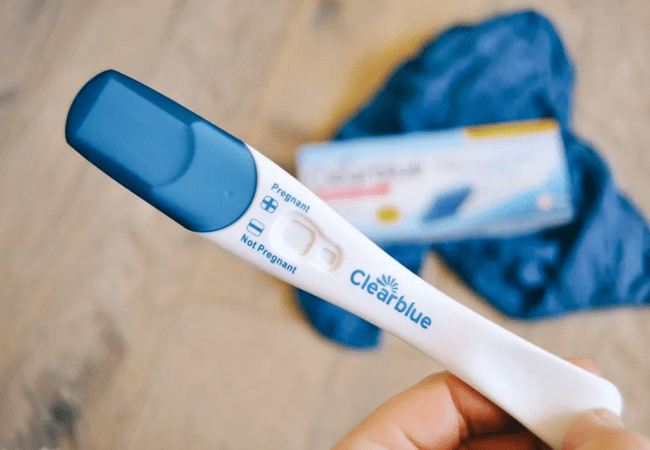Different Types of Pregnancy Test and Early Pregnancy Symptoms
Definition of Pregnancy:
Pregnancy, which is also termed as gestation is the time during which one or more offspring develops inside a woman. A multiple pregnancy involves more than one offspring, such as with twins. Pregnancy can occur by sexual intercourse or assisted reproductive technology.

Signs and Symptoms of Early Pregnancy:
It includes the following:
- Food aversions,
- Mood swings,
- Abdominal bloating,
- Frequent urination,
- Fatigue,
- Sore breasts,
- Light bleeding or spotting,
- Nausea,
- A missed period,
- High basal body temperature,
- Positive home pregnancy test.
Dangerous Signs in Pregnancy:
Danger signs during pregnancy includes:
- Vaginal bleeding,
- Convulsions/fits,
- Severe headaches with blurred vision,
- Fever and too weak to get out of bed,
- Severe abdominal pain,
- Fast or difficult breathing.
If she has any off these signs she should go to the health Centre as soon as possible:
- Fever,
- Abdominal pain,
- Feels ill,
- Swelling of fingers, face and legs.
Different Types of Pregnancy Test:
All the necessary pregnancy tests have explained in the below:
1. Urine test:
It can be done at home or at the doctor’s clinic. Home urine test for pregnancy is convenient and it is about 97% accurate.
2. Blood test:
It has been used less often though blood tests are more accurate and can detect pregnancy earlier than urine tests.
There are following types of blood pregnancy tests:
a. Qualitative hCG test:
This test simply detects the presence or absence of hCG as early as 10 days after a missed period to confirm whether women are pregnant or not. It may not detect pregnancy until three or four days after implantation.
b. Quantitative hCG test:
This test measures the amount or concentration of hCG, even very low levels, in the blood. Through this test problems like ectopic pregnancy may be detected.
c. Detecting early pregnancy factor (EPF):
Within 48 hours of fertilization, a protein called early pregnancy factor (EPF) is produced. Detecting this protein in the blood is the earliest but expensive and time-consuming way to determine pregnancy.
3. Ultrasonography:
This may be used to visualize the fetus in the womb at around four and a half weeks after last menstrual period (LMP). Ultrasonography can tell how many weeks women are into pregnancy and how healthy the baby is.
Confirmation Test for Pregnancy:
There are several way to confirm pregnancy. These are –
- Biochemical Pregnancy tests to assess presence of human chorionic gonadotrophin (hcG).This hormone is produced by the trophoblast and begins to be produced on the day of implantation hcG can be detected in the blood 6 days after conception, and in urine 26 days after conception.
- The gestational sac can be seen with a transvaginal ultrasound at 4-5weeks; and by trans abdominal ultrasound a week later.
- The Fetus can be palpated and fetal movements felt form about 22 weeks.
- Urine test at home with a home pregnancy tests (HIPTs). HPTs are highly accurate if used correctly and at the right time. The user holds a stick in the urine stream. Collecting urine in a cup at the morning and then dipping the stick into it and wait a few minutes then inspect the result.

Maria Khatun Mona is a Founder and Editor of Nursing Exercise Blog. She is a Nursing and Midwifery Expert. Currently she is working as a Registered Nurse at Evercare Hospital, Dhaka, Bangladesh. She has great passion in writing different articles on Nursing and Midwifery. Mail her at “maria.mona023@gmail.com”
